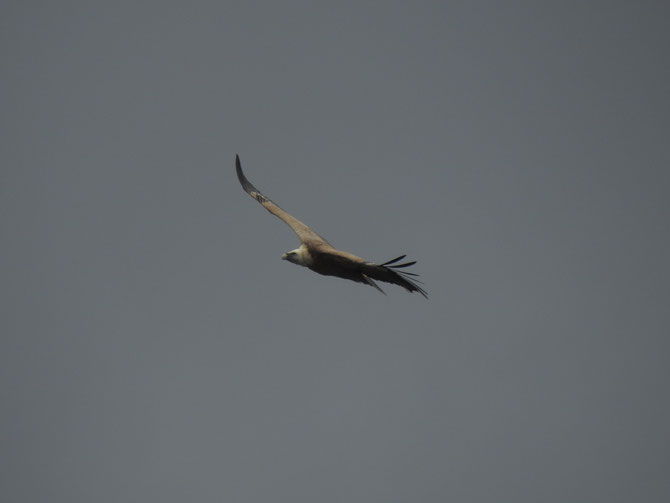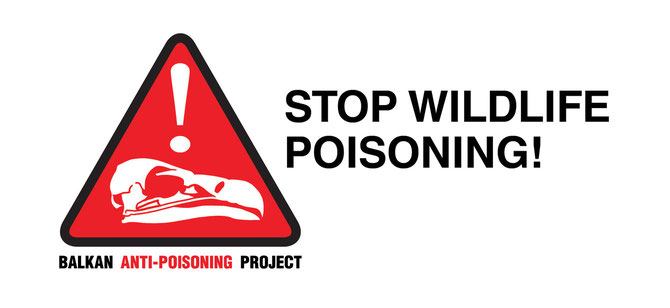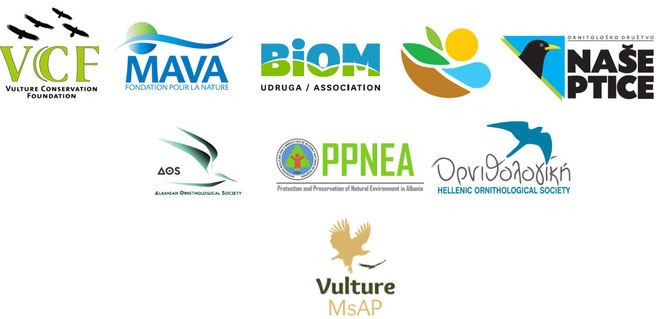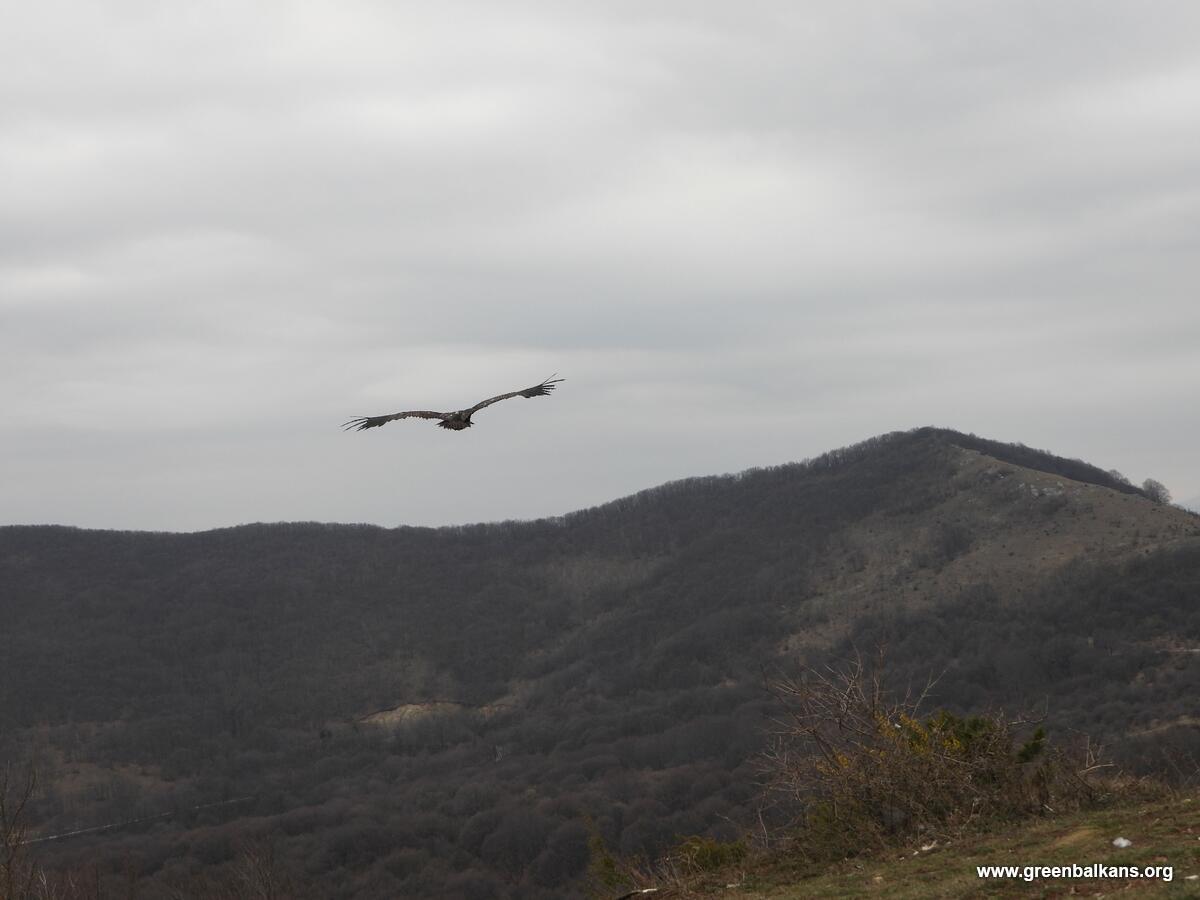
Fantastic news for vultures in the Balkans – conservationists are building a new feeding station in Serbia, which means safer food availability for these scavengers!
Building a feeding station in Pešter

Our colleagues from the Special Nature Reserve of Pešteresko Polje together with the Bird Protection and Study Society of Serbia/BirdLife Serbia, have launched an initiative to construct a feeding station for vultures. The feeding station will be located on the karst plateau of Peštersko Polje near Sjenica, in the foothill of mountain Trojan at an altitude of 1180 meters. This entire area is traditionally known for livestock breeding, extending over more than 60.000 hectares of almost exclusively mountainous pastures. Today, Pešter sustains over 60.000 herds of cattle and around 50.000 sheep, making it one of the richest areas with livestock in the country.
Vultures in Pešter

Indeed, vultures are no strangers to Pešter. The breeding colonies of Griffon Vultures at Uvac and Mileševka gorge are very near, which is why this area is one of their most frequently visited foraging sites. Another species recently paid a visit to the area – a Cinereous Vulture. This vulture is a familiar face! It’s Volen who was tagged in 2017 by the Management Body of Dadia-Lefkimi-Soufli Forest National Park in Greece under the frame of the LIFE Re-Vultures project. Volen was located precisely in the area where the feeding site is under construction.
All the above mentioned suggests that this is an important place to have a feeding station. The project is envisioned to be both beneficial to vultures, by providing safe and available food, as well as to the local community by providing the service of natural and controlled disposal of livestock. Open disposal of dead livestock, except on licensed and controlled feeding stations, is prohibited in Serbia, which is why a large amount of carrion is not in practice available to vultures and other scavengers, while transportation to official dumping sites can be quite costly. Additionally, these actions provide the opportunity for the local community to have an essential role in the vulture conservation efforts in the country, such as the communities surrounding the Uvac reserve and feeding station.
Hopefully, this action will help to further boost the breeding population of the country’s only breeding vulture species – the Griffon Vulture. The feeding site will provide an opportunity to expand their breeding and foraging range further and also to attract other foraging birds, such as Cinereous Vulture Volen, who regularly fly over south-western Serbia during their seasonal movements. This feeding station will be the fourth one intended explicitly for vultures in the country.
Fighting illegal wildlife poisoning in Serbia
Illegal wildlife poisoning is the most critical threat to vultures in the Balkans and is preventing their comeback in the region. Our partners at the Bird Protection and Study Society of Serbia/BirdLife Serbia are committed to the fight against illegal wildlife poisoning. One way they do so is through establishing this feeding site for vultures, which means providing more safe and available food, potentially contributing to fewer vultures getting poisoned in the country. Furthermore, they will carry out the ‘Stop bird poisoning in Serbia’ project with the support of our Balkan Anti-Poisoning Project Small Grants Programme, funded by the MAVA Foundation. We wish them the best of luck with their efforts to protect vultures and other birds from poisoning!
The Balkan Anti-Poisoning Project Small Grants Programme
The Balkan Anti-Poisoning Project Small Grants Programme is the first time we at the Vulture Conservation Foundation have run a grant programme, and with this we aim to reinforce national capacities within relevant governmental authorities and conservation NGOs from six countries (Albania, Bosnia and Herzegovina, Croatia, Greece, North Macedonia and Serbia) of the Balkan Peninsula. This work will support those organisations to improve the skills and capabilities in the detection and mitigation of poisoning incidents through the implementation of previously developed National Roadmaps and Strategies. More specifically, through these small grants we endeavor to secure the implementation of priority anti-poisoning actions listed in the National Anti-Poisoning Road-maps/Strategies, strengthen the capacities of relevant national governmental institutions in combating the illegal use of poison baits, improve the enforcement of relevant legislation and attract other funding opportunities for implementation of large-scale anti-poisoning projects in the region. Through the support of the MAVA Foundation, we managed to dedicate a budget of €60.000 for these small grants.
Balkan Anti-Poisoning Project

The Balkan Anti-Poisoning Project is a cross-border initiative bringing together wildlife conservation organisations, governmental agencies and other stakeholder such as; hunting associations, farmers and scientists, in six Balkan countries to tackle illegal wildlife poisoning.
Funded by the Mava Foundation we aim to secure real and continued engagement of the relevant national governmental authorities in the Balkan region against illegal wildlife poisoning and increase their capacity to counteract it and working together to take positive steps to protect vultures.
The Balkan Anti-Poisoning Project is a partnership between us here at the Vulture Conservation Foundation and the Albanian Ornithological Society-AOS, Protection and Preservation of Natural Environment in Albania-PPNEA, Ornithological Society “Naše ptice”,Association BIOM, Hellenic Ornithological Society-HOS, Macedonian Ecological Society-MES.
The Balkan Anti-Poisoning Project also contributes directly into the implementation of the Vulture Multi-Species Action Plan by carrying out anti-poisoning actions in Albania, Bosnia and Herzegovina, Croatia, Greece, North Macedonia and Serbia, and is building on our work for the last decade in the Balkans thorugh the Balkan Vulture Action Plan.




